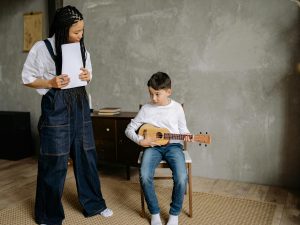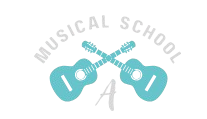Learning a musical instrument is more than just picking up a new skill—it’s a journey that nurtures the mind, body, and spirit. Whether you’re a child experiencing music for the first time, a teen expressing creativity, or an adult finally pursuing a lifelong dream, learning to play an instrument can be a transformative experience.
In this article, we’ll explore the top five life-changing benefits of learning a musical instrument—and why it’s never too early or too late to begin.
1. 🎓 Enhances Cognitive Development
One of the most profound benefits of learning a musical instrument is its impact on brain development. Numerous studies have shown that musical training enhances memory, spatial-temporal skills, and even IQ. When playing an instrument, multiple parts of the brain engage simultaneously, improving overall mental function.
Key Cognitive Benefits:
- Boosts memory and attention span
- Enhances problem-solving and analytical skills
- Strengthens verbal and mathematical reasoning
- Promotes stronger neural connections and brain plasticity
- Supports academic success, especially in reading and math
Children who engage in consistent musical practice tend to outperform their peers academically, while adults benefit from improved focus and memory retention.
2. 💡 Improves Emotional Expression and Mental Well-being
Music is a powerful emotional outlet. Learning an instrument gives students a constructive way to express their feelings, cope with stress, and manage anxiety. The act of playing music—especially pieces that resonate emotionally—can be both soothing and empowering.
Emotional & Mental Health Benefits:
- Encourages self-expression and emotional awareness
- Reduces stress and anxiety through rhythmic, mindful practice
- Builds self-esteem and confidence
- Offers therapeutic benefits, often used in music therapy
- Encourages mindfulness and emotional regulation
For children and teens, having a safe, creative outlet can be incredibly grounding. For adults, music provides a break from daily pressures and an opportunity for introspection.
3. 👯 Boosts Social Skills and Teamwork
While many think of musical practice as a solo activity, much of musical growth happens in a group setting. Whether it’s performing in recitals, joining a band, or playing in ensembles, students often collaborate with others. These interactions foster communication skills, empathy, and mutual respect.
Social Benefits:
- Encourages cooperation in group lessons or ensembles
- Teaches active listening and coordination with others
- Builds friendships and peer connections through shared interests
- Improves verbal and nonverbal communication
- Promotes cultural understanding through diverse musical styles
Recitals and group performances create a sense of community, making students feel like they’re part of something bigger—an invaluable experience, especially for young learners.
4. 🎯 Teaches Discipline, Patience, and Perseverance
Mastering an instrument doesn’t happen overnight. It takes regular practice, patience, and persistence—all of which are essential life skills. From setting practice routines to pushing through challenging pieces, students develop a strong work ethic and learn how to handle setbacks with resilience.
Life Skills Developed:
- Instills time management and goal-setting habits
- Fosters patience and long-term focus
- Teaches commitment and responsibility
- Encourages self-motivation and accountability
- Builds a growth mindset: effort leads to improvement
The sense of achievement after mastering a difficult piece reinforces the value of dedication—a lesson that students carry into academics, careers, and life.
5. 🌟 Inspires Lifelong Joy and Fulfillment
Perhaps the most beautiful aspect of learning a musical instrument is the lifelong joy it brings. Music connects people across generations and cultures. Whether playing solo, entertaining friends, or joining a local orchestra, music becomes a companion throughout life.
Personal Fulfillment:
- Provides a creative outlet for all ages
- Sparks lifelong passion and appreciation for the arts
- Enhances quality of life and mental health
- Allows self-discovery and artistic identity
- Offers opportunities to perform, share, and connect
Many students find that once they begin, music becomes a meaningful part of their identity—and a source of happiness for years to come.
🎵 Final Thoughts: A Journey Worth Beginning
The benefits of learning a musical instrument go far beyond playing notes on a page. It enriches cognitive ability, emotional health, social development, discipline, and joy. At our music school, we see these transformations every day—in the confidence of a child after their first recital, in the smile of an adult rediscovering their passion, and in the harmony of shared music.
If you or your child is considering learning an instrument, don’t wait. The rewards begin with the first lesson—and grow with every note played.
Ready to get started?
[🎹 Book Your Free Trial Lesson Today!]







